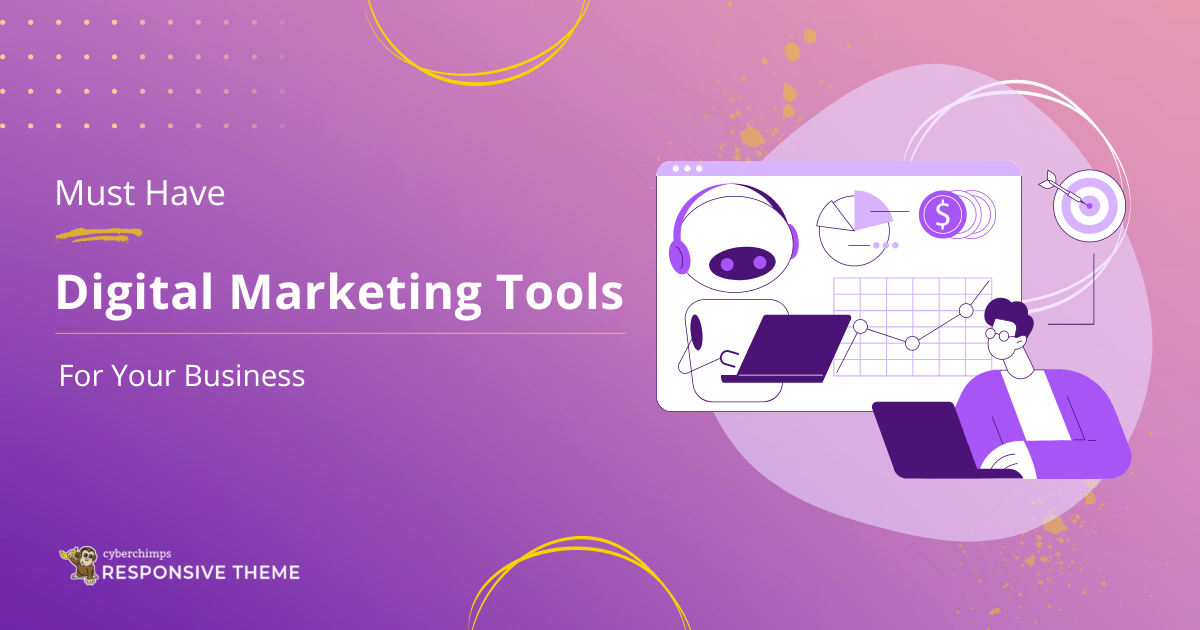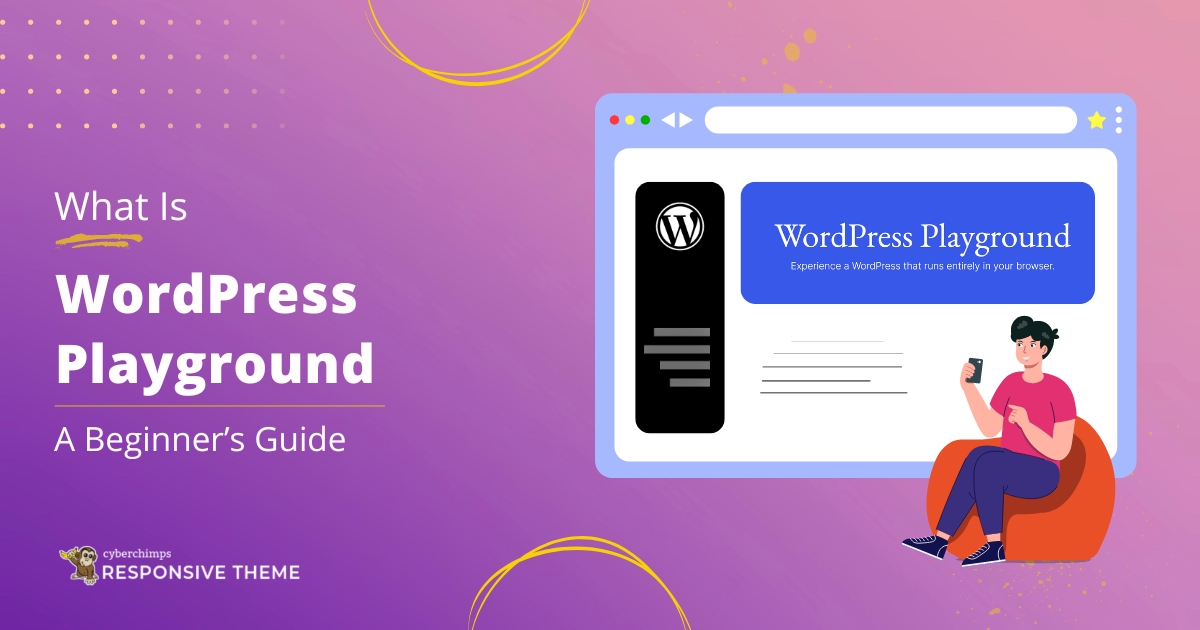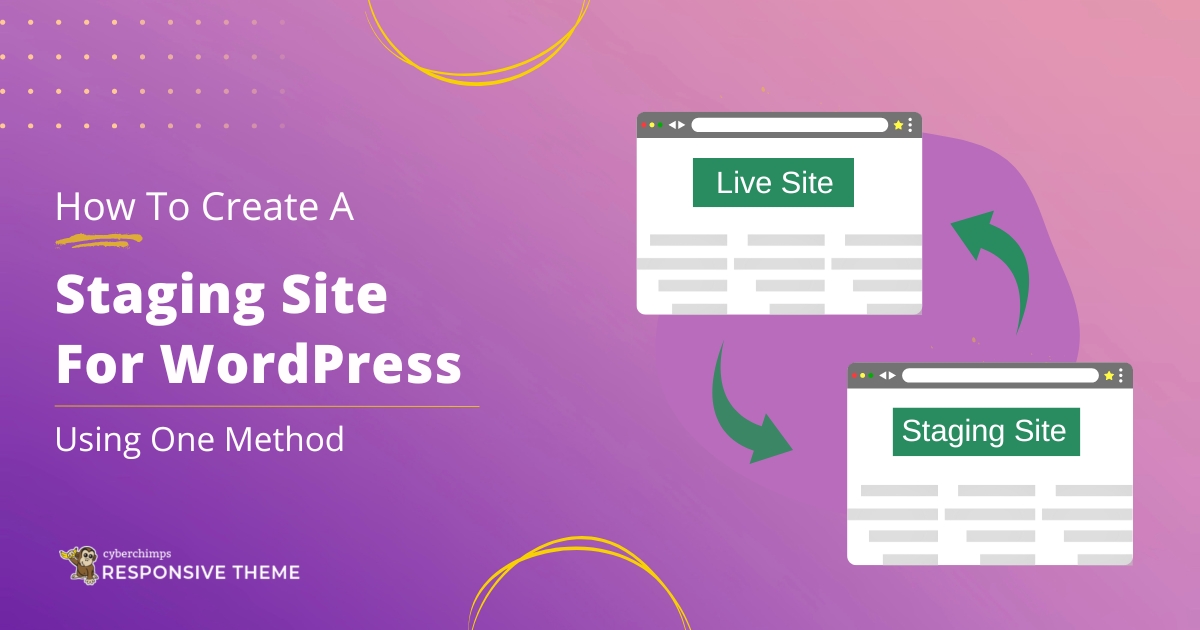Do you want to learn about digital marketing tools?
Digital Marketing is getting saturated by the day, and the flow is not stopping. From small-time businesses to full-scale conglomerates, all go online and ensure they are at the top. But as for any market rules, it doesn’t really matter how good it is what you’re selling.
It’s how you are selling it that matters the most. An excellent marketing pitch can turn the heads of potential investors and consumers. Such is the way of the digital market that we have today in the form of social media platforms and search engines.
But let us be thorough about what it means to be in the digital market and exactly how you survive and prosper in it. Using Digital Marketing Tools helps your business to grow on a new level.
What is Digital Marketing?
Getting to know the platforms of digital marketing tools that are available on the internet is the beginning step. Consider them a digital estate that can create advertisements and become a hot spot for your consumers and clients to interact with you. Of course, you’re not all digital without a trace of physical presence.
But you can do everything online without having to do much in the physical location you’re working out of. Examples can be seen in online stores where a few people work in an office overlooking operations across seas and countries to satisfy customer needs.
So, the importance of getting yourself online is undeniable, and luckily, it doesn’t cost you to take yourself on the internet. You can make yourself a website, a company mail, a social page, and you’re good to go.
How Important is it to Have Your Online Presence?
To be socially active in the world, you need to be on the top social sites in the world. That can be Facebook, Instagram, Google, Pinterest, Snapchat, Twitter, etc.
You can find yourself being able to make a free account whenever you want, but if you wish to have a business page, you should select an option that helps you be an online business that can promote itself.
Of course, there will be a lot of competition online, but you can be sure you will get your turn to pitch to your audience. Social media profiles go a long way in attracting and engaging many clients.
Many huge businesses started generating their first leads through social media.
Facebook, Instagram, and other social media platforms allow users to advertise and boost their profile’s performance on them to be able to seem more extensive and more prominent to be noticed.
Use social media management tools to help you develop, execute, and monitor a social campaign strategy.
Digital Marketing Tools
Digital Marketing Tools provide insights, performance analysis, and tips to improve digital marketing endeavors further. Following are some digital marketing tools to make your online business website easy.
Social Media Managing Platforms
1. Hootsuite

To manage multiple pages and identities across platforms, you need an advanced tool like Hootsuite. With its inception in 2008, this digital marketing tool aimed to be a helping software providing access to sending and receiving emails, notifications, and messages across several social media platforms.
Not only this, Hootsuite is one such SMM tool that offers the ability to be able to post on any social media platform at any specified time just by scheduling the post from the tool.
This allows many objectives to be achieved if the campaign requires such demands to be met.
Features:
- Allows users to schedule posts across various social media platforms.
- Provides tools for monitoring social media activity and engagement.
Pros:
Cons:
2. TweetDeck
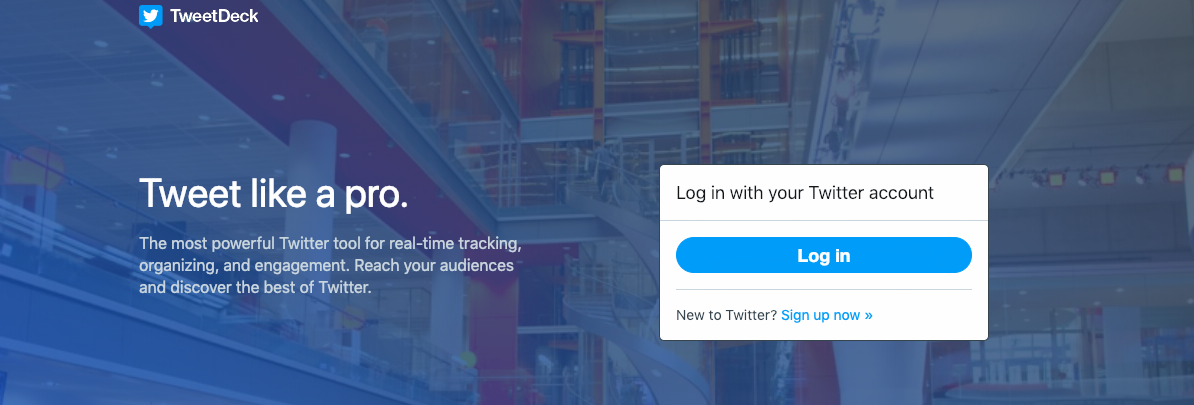
TweetDeck is a great companion, an excellent Digital Marketing tool to manage your Twitter feed of multiple accounts.
You can not only view and specify the feed you want to view, categorizing, and filtering the content you will be seeing on your feeds, but also be able to schedule posts and tweets whenever you want.
Anyone with a Twitter account can use it, making it easier to use a Twitter account. Tweet deck has many advanced features, such as; It will support your Twitter spaces, and Tweet Deck’s advanced search will help you find the content you seek.
Features:
- Allows users to schedule tweets in advance.
- Users can customize columns to track specific content, mentions, and more.
Pros:
Cons:
3. Buffer
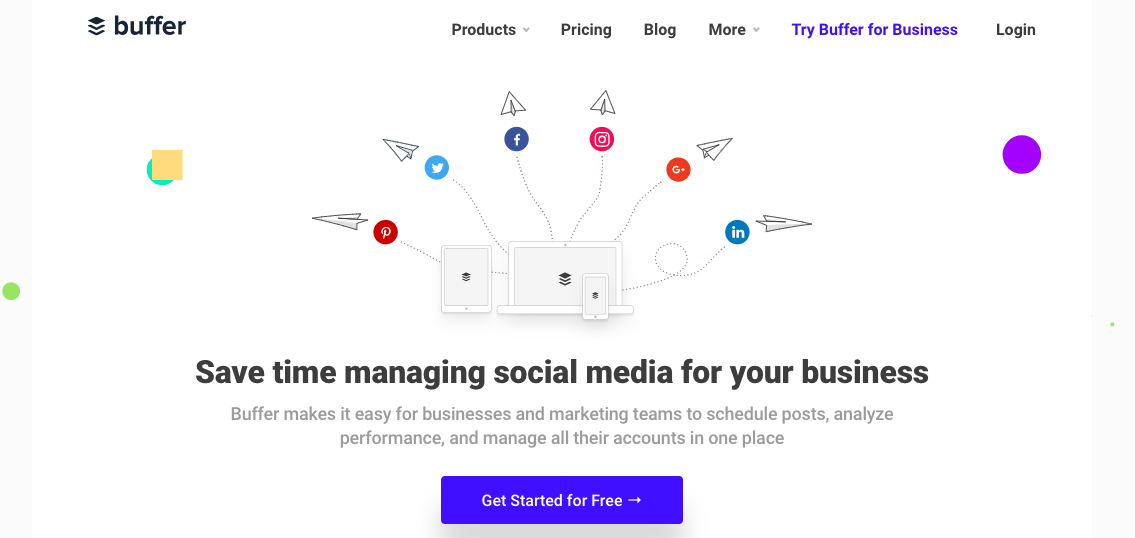
Buffer is your very own social media hub. If you need a powerful digital marketing tool that is capable of handling many accounts on almost every social site, you need Buffer.
Giving you an intelligent interface that allows you not just to oversee all your social accounts but post, schedule a post, and even comment and share posts across all networks using a single application window.
Starting from their free deal that offers to serve you by managing three accounts, you can experience the software and get up to 150 accounts if you need more action.
Just log on to their site and buy their premium subscription. Be it Facebook, Instagram, Twitter, Pinterest, and more. You can get it all done by Buffer.
Features:
- Like Hootsuite, Buffer allows users to schedule posts across various social media platforms.
- Provides suggestions for you to share relevant content.
Pros:
Cons:
SEO Tools
4. Semrush
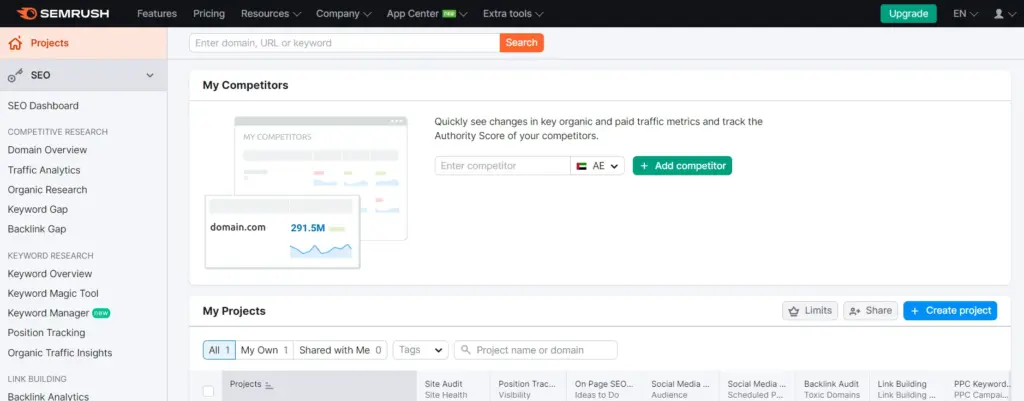
Semrush is best for business owners who want to know how their website performs because it analyzes the website traffic. It gives a detailed view of the website with all the errors.
We can check data like monthly traffic, country-to-country, or keywords. It has different tabs, but on analytics tabs, we can see who the people visiting our site are, from where and how long they are staying on the site, and how many pages they are viewing. It is similar to the GA4 Account.
Features:
- Fantastic tool for keyword research and analysis.
- Allows users to analyze competitors’ online strategies.
Pros:
Cons:
5. Ahrefs
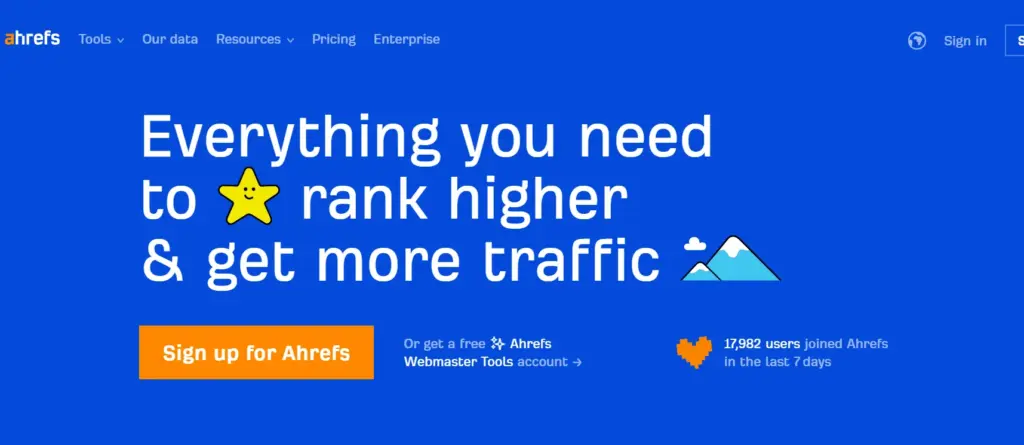
Ahrefs offers a variety of search engine optimization tools to assist you in improving the website based on your marketing requirements. It is mainly used for backlink verification, and with its vast data index, it is, without a doubt, one of the most in-demand digital marketing tools on the market.
It allows you to determine the best websites for your content and strategically choose content themes.
The tool aids in competitor analysis. It is a complete SaaS platform, including testimonial extracts, a data index, and a free trial. It allows you to keep track of your chores, and It allows you to keep track of your ranking progress.
Features:
- In-depth analysis of backlinks for websites.
- Provides tools for detailed website audits.
Pros:
Cons:
6. Screaming frog
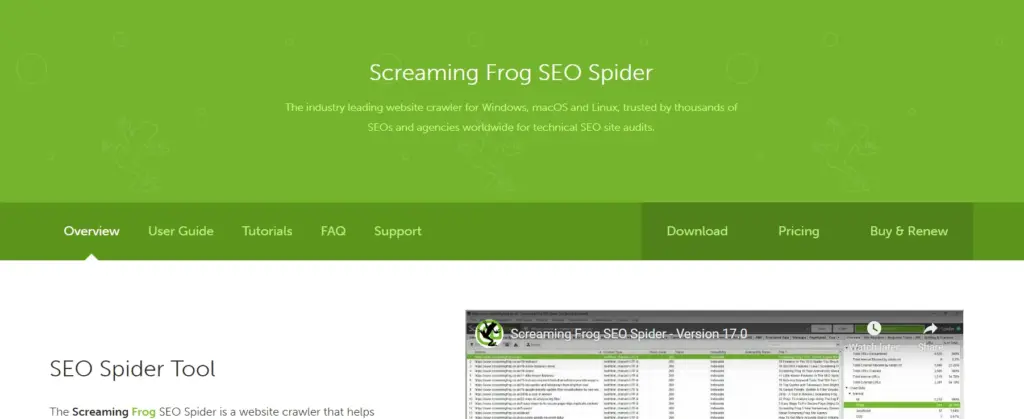
Screaming Frog SEO Spider is an excellent digital marketing tool for evaluating how a website works from a technical SEO standpoint. It allows you to delve deep into any website’s URLs and is an excellent method to broaden your awareness of website UX best practices.
The Application is available for download in free and paid versions on your computer. The free version is reasonably thorough.
Features:
- Crawls websites to analyze on-page SEO elements.
- Identifies and reports broken links on a website.
Pros:
Cons:
7. Moz
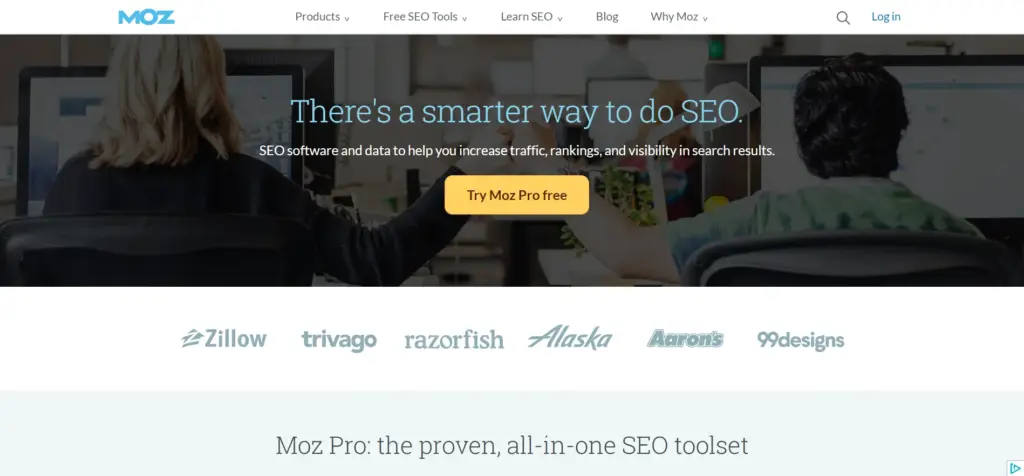
Moz is an iconic brand in the marketing and SEO industries and is also one of the most used digital marketing tools by SEO specialists. Rand Fishkin and Gillian Muessig launched it in 2004. They are well-known for being among the first organizations to develop SEO tools.
They provide fantastic advice on Local SEO, link building, content marketing, and other topics. Moz PRO and Moz Local are their significant offerings. Moz is the best marketing blog for beginners since it explains everything about SEO marketing. In addition to SEO marketing, Moz plays with several marketing-related issues.
Moz has blogs ranging from “Whiteboard video lessons” to “Guide towards fundamental marketing.” A unique feature of this marketing blog site is its endeavor to present playful pieces so readers will be quickly attracted.
Features:
- Analyzes and suggests improvements for on-page optimization.
- Monitors keyword rankings over time.
Pros:
Cons:
8. WAVE
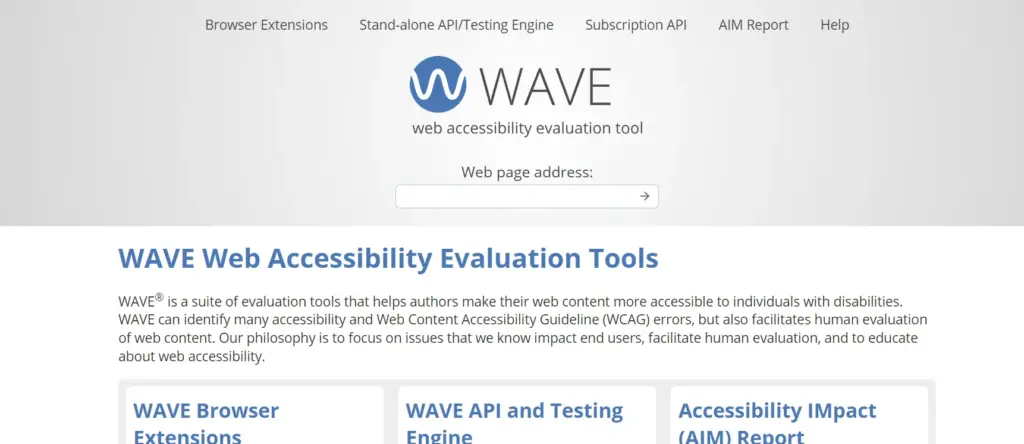
Wave is known as an online accessibility tool that helps websites to provide accessible content. It analyses website content using WCAG criteria and manually evaluates the website’s content to check if any gaps can be hindered by the accessibility check.
It is a timely, effortless automatic scanning tool that gives accurate results. The WAVE tool also has a Chrome extension that can be used easily to evaluate the website.
It analyzes the website page by making the web page copy. It not only analyzes but also performs the check within the browser. Unlike other tools, it will not save any information on the server. While analysing, it will always recommend the error to fix it.
Features:
- Assesses the accessibility of web content for individuals with disabilities.
- Offers a Chrome extension for on-the-fly accessibility checks.
Pros:
Cons:
Conversion Optimization Tools
9. Hotjar

Hotjar is a game-changing user analytics and feedback digital marketing tool. Heatmaps, session logs, polls, feedback surveys, and other advanced features provide deep insight into user activity on websites and mobile apps.
Heatmaps visualize user interaction by highlighting the most active areas. Session recordings allow marketers to explore real user experiences and identify pain points and happy moments.
Surveys provide essential information that can be used for developing effective marketing strategies and to better understand what consumers want.
Marketers can optimize conversion channels by analyzing data, removing roadblocks, and improving user experience. The customer-oriented design promotes brand loyalty and brand satisfaction.
Features:
- Visualizes user interactions on a website through heatmaps.
- Allows users to collect feedback through surveys and polls.
Pros:
Cons:
10. Microsoft Clarity
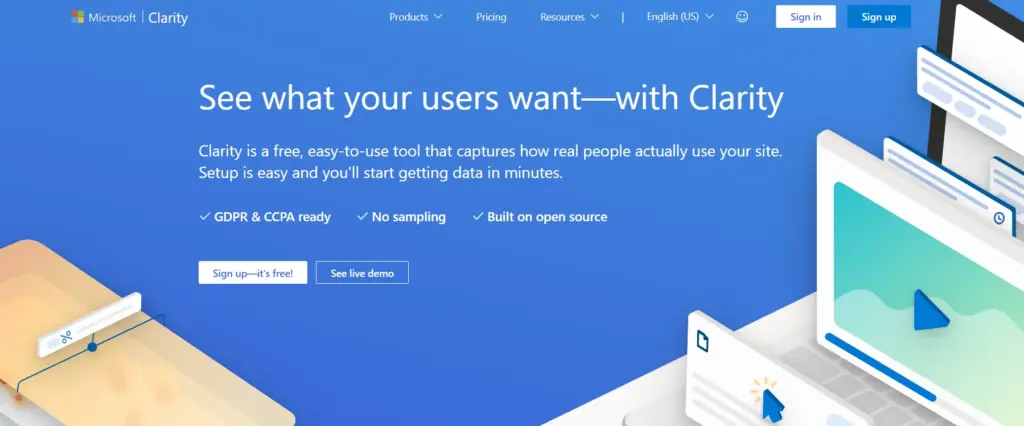
Microsoft Clarity is a user-friendly and free application that gathers data on how people interact with your website. The setup is straightforward. The data is received within minutes.
The information is provided to the website owners and the developers on how people interact with their websites. It provides a better understanding of users’ behavior and makes user experiences easy.
Features:
- Records and plays back user sessions on a website.
- Visualizes user interactions through heatmaps.
Pros:
Cons:
Image Or Design Tool
11. Canva
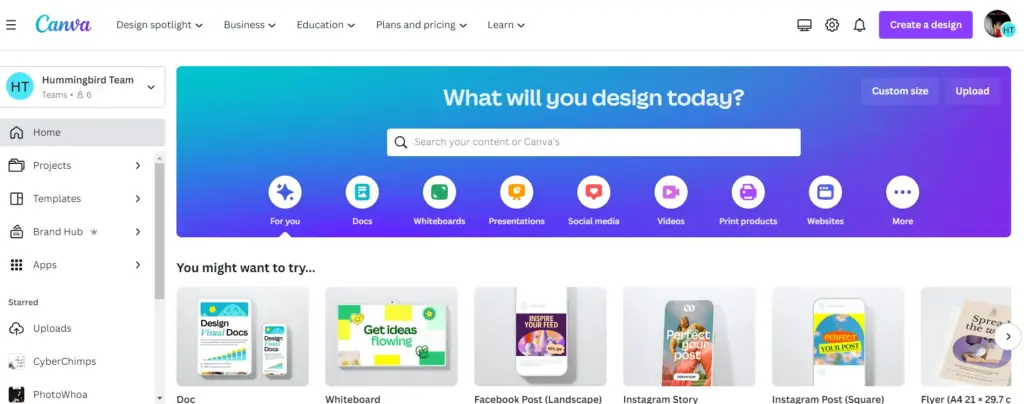
Canva is an easy and lightweight digital marketing tool for creating graphic material for social networking. You may begin with templates and then add your images or stock photographs.
Canva makes it simple to generate photos for your posts, videos, or stories in a variety of formats for your various social media networks.
There is a free plan that is ideal for getting started. Still, if you require additional photographs and material and can schedule your articles directly in the Application, the Pro option starts at around $150 per year.
Features:
- Provides a user-friendly platform for creating graphics and visual content.
- Offers a wide range of customizable templates for various design needs.
Pros:
Cons:
Digital Marketing Analytics Tools
12 . Facebook Ads Manager

Facebook Ads Manager provides its users with an overall view of their campaigns. This digital marketing tool helps you create a campaign, set a budget run your ads, target your audience, and check how well your ads perform.
It will also showcase the billing summary, payment history, and payment method information. The Primary features of this tool include the following: Planning of campaign Structures, Management and Creation of Ads, and Management of Assets.
Features:
- Allows users to create and manage Facebook and Instagram ads.
- Provides detailed targeting options for ad audiences.
Pros:
Cons:
13. Google Analytics 4
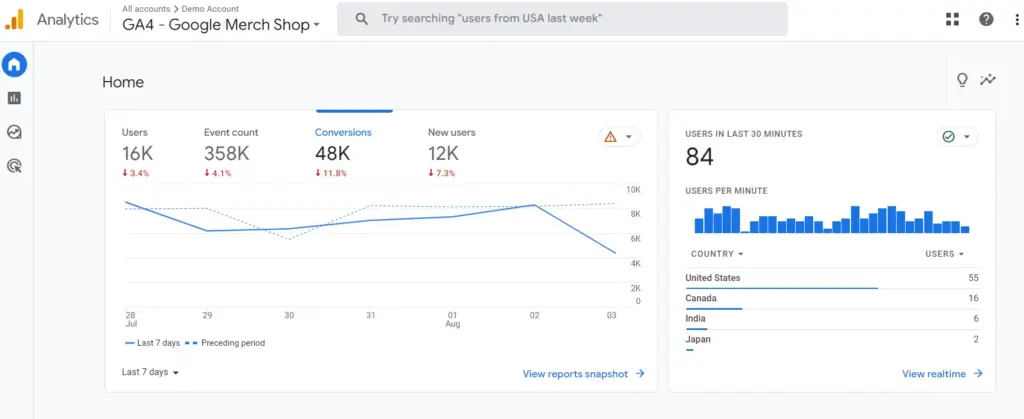
Google Analytics 4 is a powerful digital marketing tool that can easily track your website. It is a data insight tool that provides data like organic traffic, from where the traffic comes, and can calculate the total order placed, cart abandonment rate, and many more.
All you need to do is install GA4 and connect your website, and you are good to go. GA4 helps you understand your target audience. This insight will help you make your landing page more engaging.
GA4 tells you how your business works and gives an overall performance idea.
It also comes with creating customized reports on the dashboard and many features and functionalities.
Features:
- Tracks user interactions across websites and mobile apps.
- Improved reporting features for deeper insights.
Pros:
Cons:
14. Google Search Console
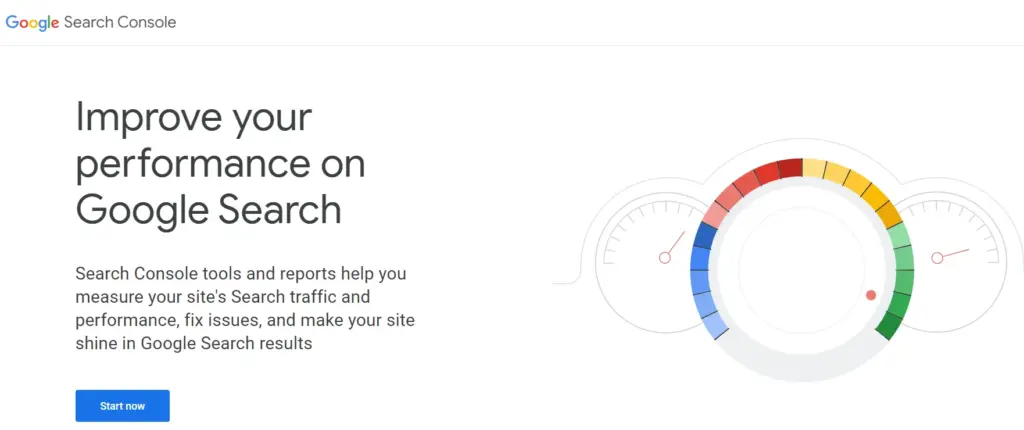
Google Search Console is free and is a digital marketing tool that allows you to manage and edit your website visible in Google’s Search results. You don’t have to sign up for Search Console to find Google search results, but Google can help you understand how your site is found and improve it. Make sure Google can find and crawl your website.
Look at your site’s Google Search traffic statistics, such as how often your site appears in Google Search, what search terms your site displays, and how many times searchers click through to that on the research.
Get notifications when Google detects indexing, spam, or other problems with your website.
Identify websites that are linked to your websites.
Features:
- Provides insights into how a website appears in Google search results.
- Allows users to inspect how Google views a specific URL.
Pros:
Cons:
15. Google Ads
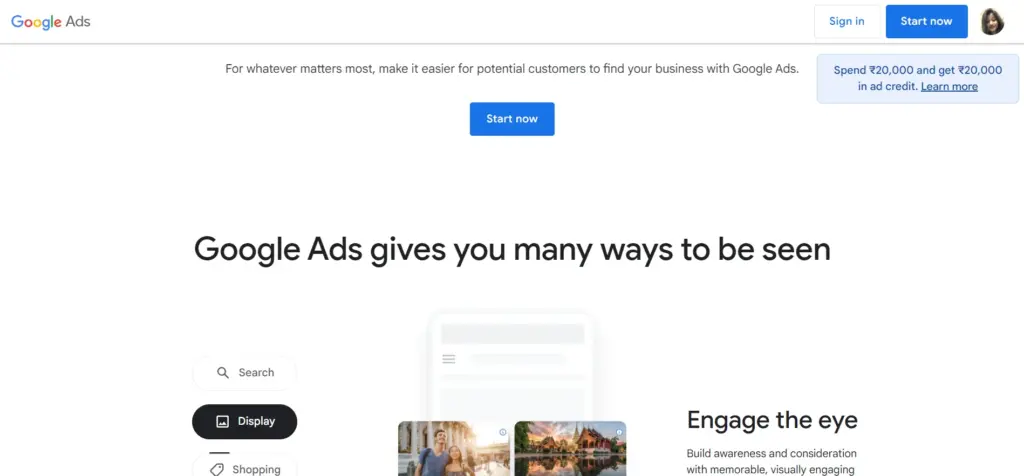
Google Ads is the best digital marketing tool by Google. Which helps reach new customers online.
These tools can grow your business by reaching your marketing goals, targeting your ads with keywords, getting specific data about your targeted audience, and advertising across platforms.
Google ads work by fixing specific keywords for a specific campaign that targets a specific area and demographic, which can be targeted to the potential customer.
Features:
- Google Ads allows advertisers to bid on specific keywords.
- It offers various ad extensions, such as site link extensions and callout extensions.
Pros:
Cons:
Best Email Marketing Tools
16. MailChimp
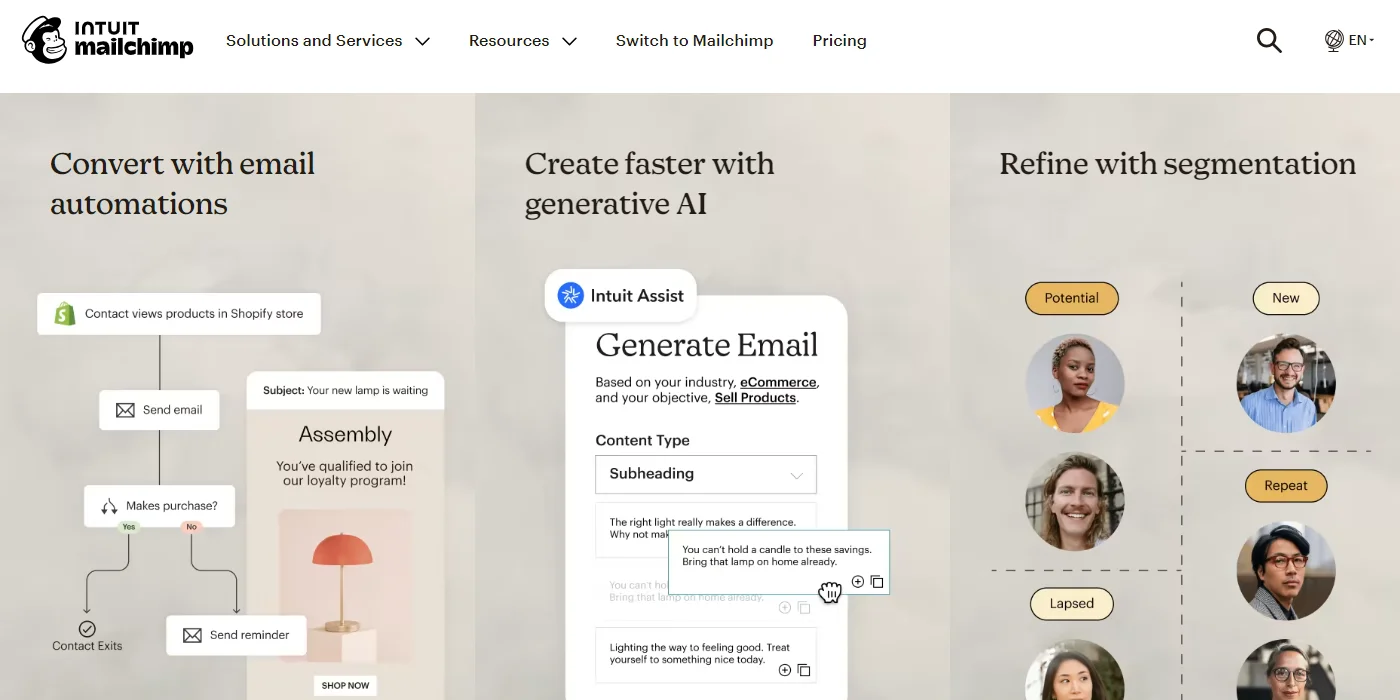
Mailchimp is a versatile email marketing platform known for its user-friendly interface and features. You can use this tool to businesses of all sizes, allowing users to create visually appealing email campaigns effortlessly.
The platform offers a drag-and-drop editor for easy design, automation tools for triggered and targeted campaigns, and seamless integration options with third-party tools.
With the free plan, Mailchimp is ideal for small businesses, while its scalability ensures it meets the needs of larger enterprises.
Features:
- Intuitive editor simplifies the email creation process.
- Powerful automation features allow for the creation of personalized customer journeys and triggered email campaigns.
Pros:
Cons:
17. Moosend
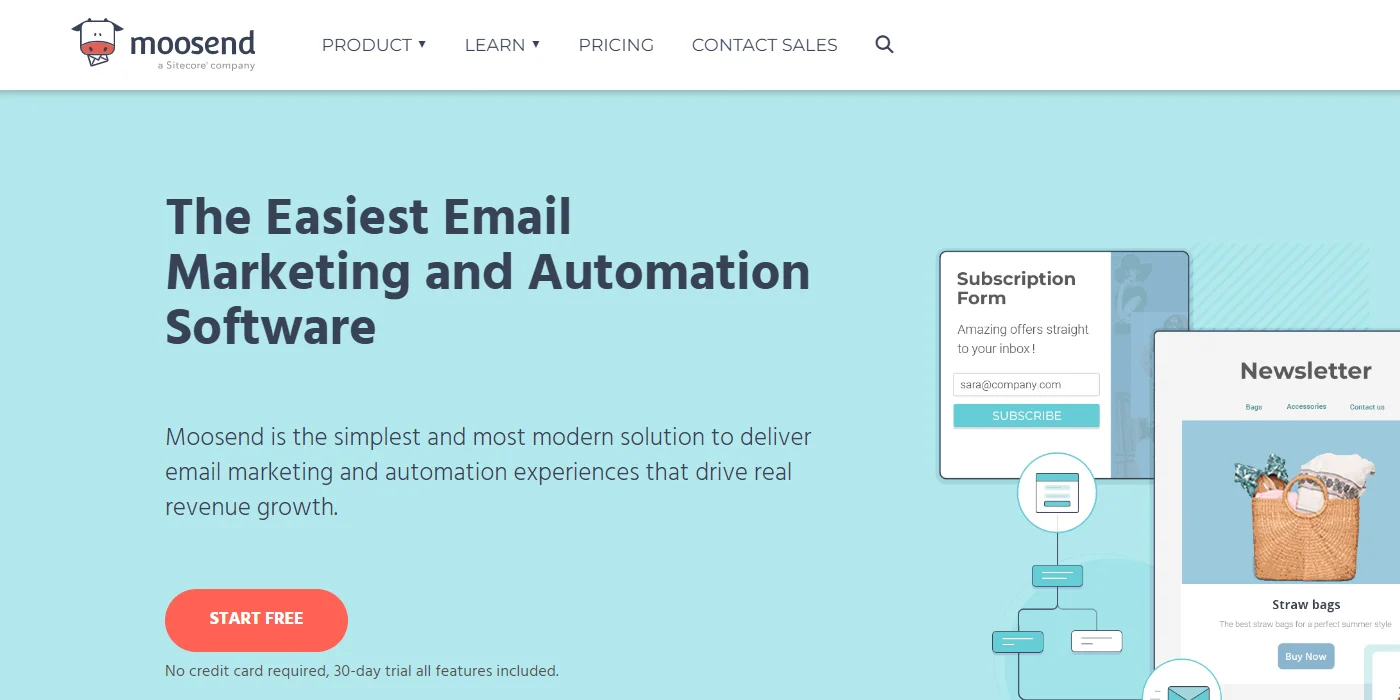
Moosend is a robust email marketing platform designed for simplicity and efficiency. It stands out for its user-friendly interface, making it accessible for both beginners and experienced marketers.
Moosend offers features such as customizable email templates, advanced automation tools, and detailed analytics. It provides competitive pricing plans that make it an attractive option for businesses of various sizes.
The tool is an all-in-one approach that includes additional features beyond email marketing, such as landing page creation and subscription form builders.
Features:
- Moosend provides advanced automation tools.
- In addition to email campaigns, Moosend includes a versatile landing page builder.
Pros:
Cons:
FAQ
The tools necessary for digital marketing are Google Analytics, Google Search Console, Semrush, Ahrefs, Moz, Microsoft Clarity, wave, etc.
Digital marketing tools help with the online presence to rank your website at the top of the search results. Many tools can help your website to rank on top.
The most popular forms of digital marketing are Social media, email,pay-per-click, and Search engine optimization (SEO).
Digital marketing is purely based on technology; hence dependability on technology is a significant limitation of digital marketing,
Conclusion
Whether your business is about iPhone tracking services or an online store, you must have an online presence and ensure that your ranking reaches the top. There are ways to rank up to the top. But ultimately, it’s your strategy that counts.
These tools make the website run faster and get it on the top of Google.
If you’ve liked reading this article, don’t forget to check our other engaging articles:
- Easy WordPress SEO Tips & Techniques To Boost Rankings
- Alternatives To Hootsuite Or Buffer To Up Your Social Media Marketing Game
- SEMRush Review – Sign Up For A Free Trial Today
Want to create a website? Grab the Responsive theme, as it’s fully compatible with WordPress.

